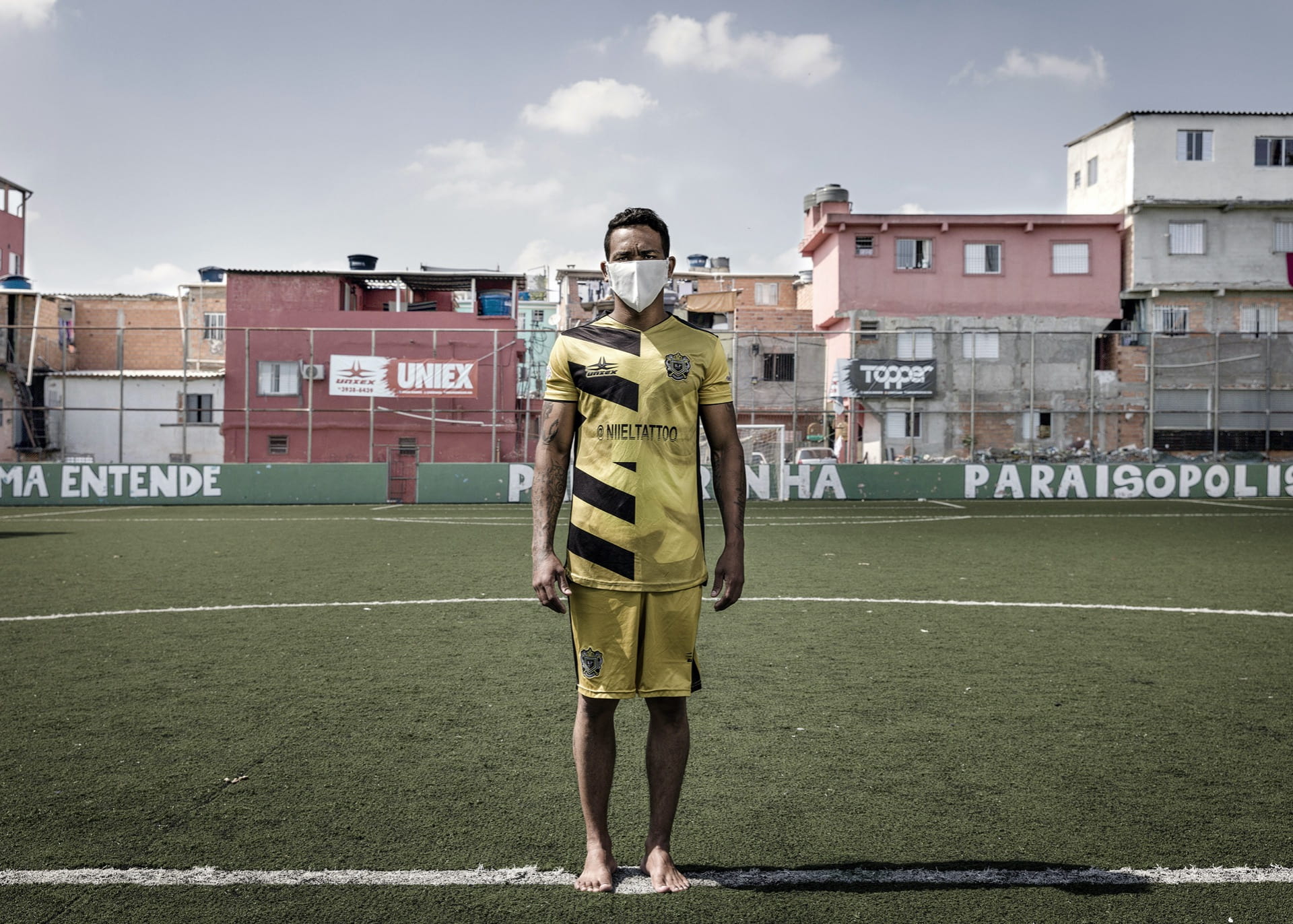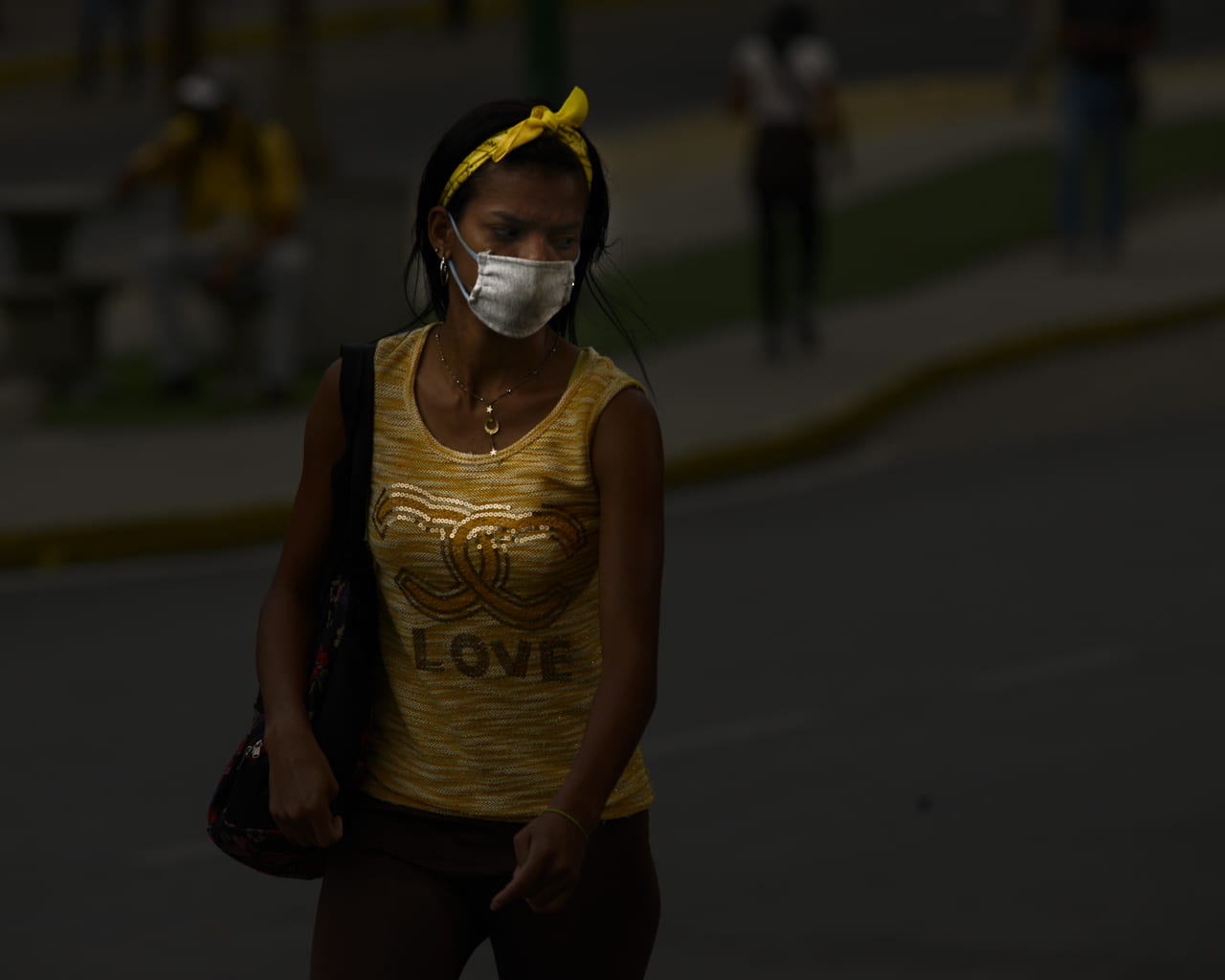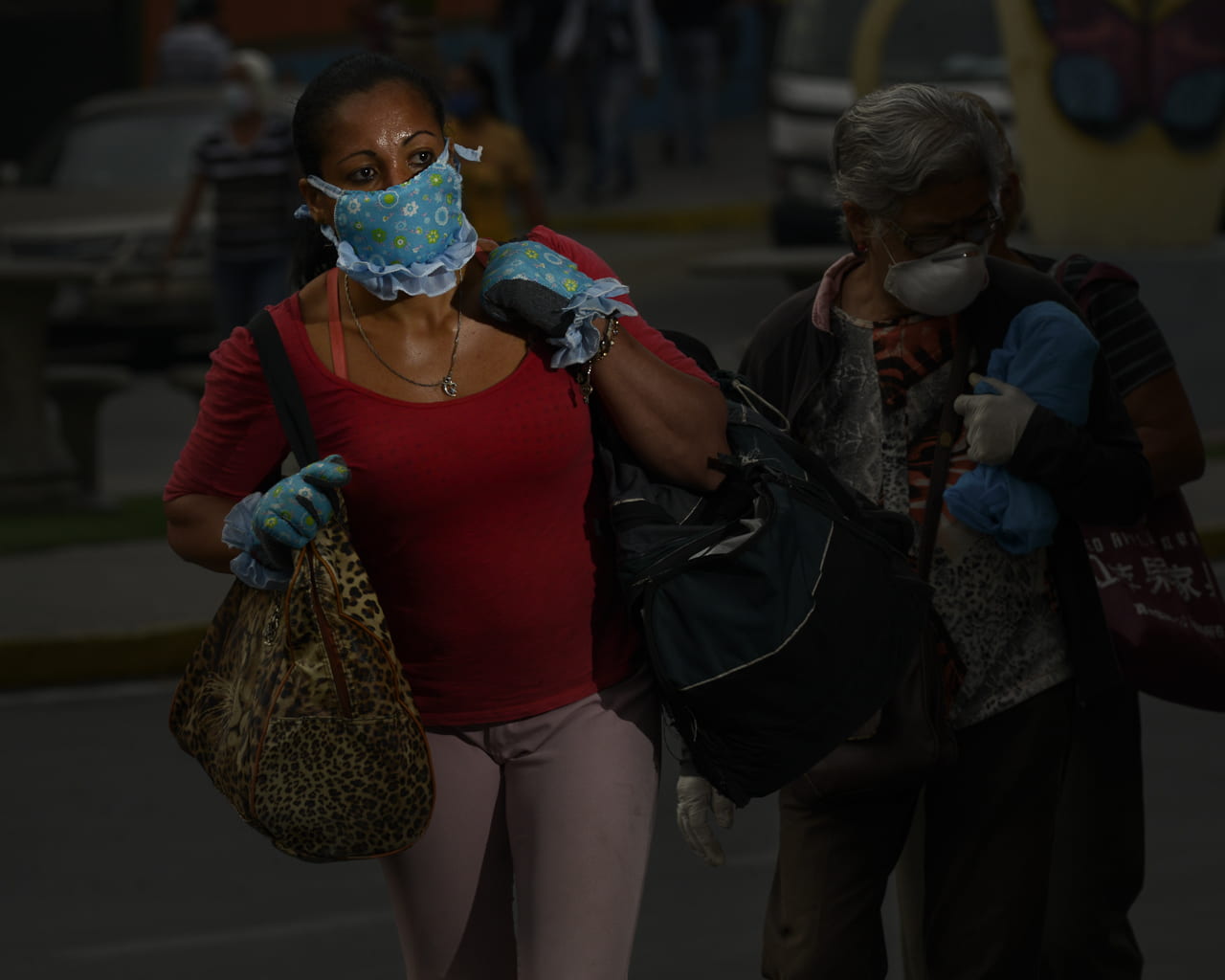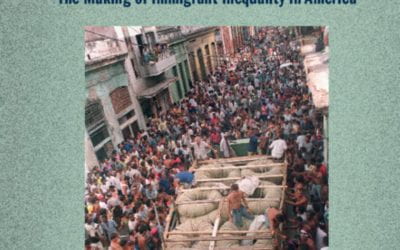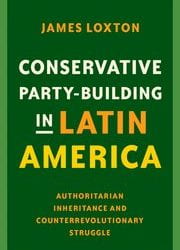Afrodescendants and Covid-19
The Wounds of Historical Racism
Photos by Gui Christ and Andrea Hernández Briceno
The photos in this article are by Gui Christ and Andrea Hernández Briceno from the digital exhibition “Documenting the Impact of Covid-19 through Photography: Collective Isolation in Latin America,” curated in collaboration with ReVista and the Art, Culture, and Film program at Harvard’s David Rockefeller Center for Latin American Studies (DRCLAS.) Christ was the third-place winner (tied) of the competition.
The exhibition, based on an Open Call for Photography launched in July 2020, aims to create a critical visual record of our unprecedented times so they can be remembered by future generations. 2020 will be remembered as a watershed year in which a pandemic laid bare the inequalities and fissures within our society. It has also underscored the importance of living and participating in communities even while experiencing the pandemic in isolation. The exhibition seeks to promote a regional perspective from Latin America and the Caribbean of the collective isolation imposed by Covid-19.
As an Afro-descendant Chilean who is also an activist in my community, I am constantly struck by our exclusion from the conversation about the impact of Covid-19. We know for a fact that the pandemic affects the most vulnerable members of the society. Afro-descendants are among the most affected, and that has opened up the structural wounds of racism, both systematic and historical.
Historically, we have struggled with our negation as citizens, together with the negation of our civil, social, economic, political and cultural rights In spite of the fact that in the last twenty years, several instruments of protection have been created regarding human rights under the United Nations and Interamerican (OAS) systems, the barriers of structural racism still stand and today this pandemic make them more visible in diverse social spaces. Ten months after the virus first appeared and the pandemic extended throughout the world, Afro-descendant communities have been on the front lines of victims in distinct social environments. Houseworkers, men and women who work in essential factories, independent informal workers and immigrants, many of them Afro-descendants, especially in Europe and America, have been rendered vulnerable without health insurance or income to help them survive this health crisis.
- 04/23/2020. São Paulo, Brazil. Portrait of Adriano Silva Santos at the Palmeirinha soccer court located at the favela of Paraisópolis. Gui Christ / The National Geographic Society
- 04/18/2020. São Paulo, Brazil. Portrait of the sisters Aryelle and Aryanne de Jesus at the stairs that lead to their family’s house at the favela of Paraisópolis. Gui Christ / The National Geographic Society
- 04/20/2020. São Paulo, Brazil. Portrait of Acadio Roberto José de Souza standing in a destroyed shack close to his house located at the favela of Paraisópolis. Gui Christ / The National Geographic Society
Afro-descendants are also prone to certain chronic ailments, some of which lead to fatal outcomes with Covid-19. High blood pressure, sickle anemia, diabetes, obesity, diabetes, chronic renal failure, strokes and heart disease are prevalent in our communities. To this, we can add the lack of disaggregated data in our countries’ health systems that make access to timely and appropriate health care for our people difficult. The United Nations, through its High Commissioner for Human Rights, Michelle Bachelet, declared in a speech at the beginning of June, “This virus is exposing endemic inequalities that have too long been ignored. In the United States, protests triggered by the killing of George Floyd are highlighting not only police violence against people of colour, but also inequalities in health, education, employment and endemic racial discrimination.” She also emphasized that the battle against the pandemic cannot be won if governments refuse to recognize the flagrant inequalities that the virus is laying bare. The efforts to contain Covid-19 and begin the process of recuperation will only be successful if they protect the right to life and health of all people.
The Inter-American Network of High Authorities on Policies for Afro-descendant Populations (RIAFRO) warned against the disproportionate impact of SARS-CoV-2, the virus that causes Covid-19, on the Afro-descendant population in the region. In an April 4 virtual meeting, the organization cautioned that one of the great challenges to resolve in the countries of the region is to guarantee the enjoyment of human rights of Afro-descendant individuals in the context of the health crisis, in particular regarding access to economic and social rights.
According to the World Bank report, “Afro-descendants in Latin America: Toward a Framework of Inclusion,” there are 133 million Afro-descendants in Latin America, and one out of every four Latin Americans identifies as Afro-descendant. The report also reflects on inequality. For example, Afro-descendants are 2.5 times as likely to live in chronic poverty than whites or mestizos; they have fewer years of schooling; they experience more unemployment, and they are underrepresented in decision-making positions, both in the public and private sectors.
In 2014, the United Nations General Assembly proclaimed the International Decade for People of African Descent with the slogan, “Recognition, Justice and Development.” A decade in which states should adopt concrete and practical measures through the approval and effective application of national and international legal frameworks, as well as policies and programs to combat recism, racial discrimination, xenophobia and related forms of intolerance faced by Afro-descendants, taking into account the particular situation of women, girls and young boys. In a decade that is today at its halfway point, we see there have been few advances in the plan of action agreed upon by member states. To this we add that it is a decade that has has to confront this pandemic, portending a sad prognostic for achieving the proposed objectives. The pandemic has deepened already existing racial inequalities in the Afro-descendant population throughout the world. The deficient and almost non-existent policies for racial equality that the states had intended to promote will not be of much help in confronting the health crisis we are living today.
In November 2018, the General Assembly of the United Nations, in the context of the decade plan, approved resolution A/RES/73/262 to establish the Permanent Forum on Afro-descendants, which would “be utilized as a consulting mechanism for Afro-descendants and other interested parties as a platform to improve the quality of life for Afro-descendants and as a contribution to the elaboration to a United Nations declaration.” The establishment of this Forum would contribute to lessening the gaps of inequality and in turn to orient states about how they could implement public poicy towards our communities more effectively. Sadly, the pandemic has made it quite uncertain if states will advance in discussions about the installation of the Forum, and whether it would operate under the UN Human Rights Council or the Economic and Social Council (ECOSOC).
In the framework of the Decade program, we—a group of Afro-descendant leaders from all over Latin America—organized the Latin American Coordination for the Afro-descendant Decade (ALDA), which seeks to promote commitments and fulfilment of the Decade, empasizing followup of the Universal Declaration of Afro-descendants and the installation of the Permanant Forum. In regards to the latter, we are asking for it to be set up under ECOSOC, because we feel that now more than ever, the United Nations and its member states ought to invest more in the development of our communities so that directed and effective actions can lift our people from the poverty and marginalization in which so many find themselves.
As ALDA, we are concerned about the need for the United Nations and member states to reflect with urgency about the importance of strengthening the proposed actions in the context of the Decade, emphasizing development, as an additional measure to confront the challenges the post-pandemic period will bring. Likewise, we feel that it is necessary to install the Permanent Forum, as it will be the key instrument to make visible the diverse problems of racial inequality that today affect our Afro-descendant communities throughout the world, particularly in Latin America, as a consequence of Covid-19.
The Afro-descendant civil society agenda for 2020 is to deepen the Decade action plan, with the participation of states and the United Nations, to be be able to recommend and demand that the states make a great effort to fulfil the commitments they have already agreed upon, in order to diminish the asymmetries that exist between Afro-descendants and the general population. Lamentably, the arrival of the Covid-19 pandemic has obliged all 2020 programs to be modified, because states have justified the necessity to focus their efforts on combatting the pandemic, which indirectly signifies not deepening Afro-descendant Decade priorities related to recognition, justice and development, and in some way makes even more evident the historic structural racism toward the Afro-descendant population.
- Andrea Hernandez Briceno, Caracas, Venezuela 07 “Love”
- Andrea Hernandez Briceno, Caracas, Venezuela, 02 “Perolero”
- Andrea Hernandez Briceno, Caracas, Venezuela, 02 “Mascarilla”
During the month of September, representatives of several Afro-descendant groups and networks from Latin American and the Caribbean formally requested the UN Economic Commission for Latin America (CEPAL), in the framework of its mission and the type of organization it is, to lead the democratic dialogue, “A Strategic Plan for the Social and Economic Reconstruction of Latin America and the Caribbean,” which includes in a real and effective manner the demands of Afro-descendant people to cope with the current situation and post-pandemic. In this strategic plan, Afro-descendants agreed on the importance of demanding that states and international cooperation agencies take affirmative global actions that in some way help to to resolve the effects of the pandemic and of historical racism.
Some possible actions would be the creation of a Fund for the Economic Development of Afro-descendants in the Organization of American States (OAS) and in the United Nations, the effective implementation of the guidelines of the International Decade of the Afro-descendants, Agenda 2030 on sustainable development, and the Plan of Action of the Decade of Afro-descendants (2016-2025), the creation of a Permanent Forum of the African Diaspora coordinated by ECOSOC, and the signing, ratification and effective implementation of the OAS Interamerican Convention against Racism, Racial Discrimination and Related Forms of of Intolerance, as well as the universal declaration of the Afro-descendant people.
Although the aggressive capitalism that operates today in many developed and imperialist countries has been implemented in the past two decades, these countries have been hard hit by this pandemic, but even worse off are those countries indebted to the legacy of colonialism, slavery and the exploitation of centuries, countries in which the majority of our Afro-descendant populations are encountered. This economic system is and will continue to directly affect out Afro-descendant communities, deepening the economic, health and food crisis even more, a fact that obligates us as an Afro-descendant social and political movement in the Americas to reflect and analyze the effectiveness of these diverse instruments for human rights that have been implemented in the past twenty years or whether it is necessary, going forward, to promote an an agenda of economic and social development for the protection, development and sustainabiity of our Afro-descendant population in the Americas.
Afrodescendientes y Covid-19
Las heridas del racismo histórico
Por Cristian Baéz Lazcano
Fotografía por Gui Christ y Andrea Hernández Briceno
Las fotos utilizadas en este artículo por Gui Christ y Andrea Hernández Briceno provienen de la exposición digital “Documentando el impacto de Covid-19 a través de la fotografía: Aislamiento colectivo en Latinoamérica,” curada por ReVista y el Art, Culture, and Film program del David Rockefeller Center for Latin American Studies (DRCLAS) de Harvard. Christ ganó el tercer lugar (empatado) en el concurso.
La exposición, resultado de un concurso de fotografía anunciado en Julio 2020, busca crear un registro visual de estos tiempos sin precedentes y contribuir a nuestra futura memoria histórica. 2020 será recordado como una año decisivo en el que una pandemia dejó al descubierto las desigualdades y fisuras dentro de nuestra sociedad y la relevancia de vivir y participar de la vida en comunidad incluso mientras se vive la pandemia de forma aislada. La muestra procura promover una perspectiva regional del aislamiento colectivo impuesto por el Covid-19 desde América Latina y el Caribe.
Soy un chileno Afrodescendiente quien también es activista. Me impresiona el hecho que estamos excluidos de la conversación sobre el impacto de Covid-19. Sabemos de hecho que la pandemia afecta los miembros mas vulnerables de la sociedad. Los Afrodescendientes están entra los mas afectados, y eso ha abierto las heridas estructurales de racismo, tanto sistemáticas como históricas. Es importante aprovechar los organismos internacionales para presionar no solamente para justicia racial, pero justicia económica y iguales oportunidades de desarrollo.
Históricamente hemos luchado con la negación como ciudadanos y ciudadanas junto a la práctica de los derechos civiles, sociales, económicos, políticos y culturales. A pesar de que durante estos últimos veinte años se han creado diversos instrumentos de protección en materia de derechos humanos, bajo el alero del sistema de Naciones Unidas y el Interamericano (OEA), no se ha logrado derribar las barreras del racismo estructural y que hoy en esta pandemia se visibilizan mucho más en diversos espacios sociales.
A diez meses de haberse declarado y expandido la pandemia por el mundo, se ha quedado en evidencia que las comunidades africanas y afrodescendientes están siendo la primera línea de víctimas amenazadas y golpeadas por el Covid-19 en distintos espacios sociales. Mujeres trabajadoras de hogar, hombres y mujeres que se desenvuelven en espacios de producción de primera necesidad para el abastecimiento, trabajadores independientes informales, inmigrantes en su mayoría afrodescendientes, especialmente en Europa y América, el cual han quedado vulnerables sin protección de salud e ingresos económicos que les permita sobrevivir esta crisis sanitaria.
- 04/23/2020. São Paulo, Brazil. Portrait of Adriano Silva Santos at the Palmeirinha soccer court located at the favela of Paraisópolis. Gui Christ / The National Geographic Society
- 04/18/2020. São Paulo, Brazil. Portrait of the sisters Aryelle and Aryanne de Jesus at the stairs that lead to their family’s house at the favela of Paraisópolis. Gui Christ / The National Geographic Society
- 04/20/2020. São Paulo, Brazil. Portrait of Acadio Roberto José de Souza standing in a destroyed shack close to his house located at the favela of Paraisópolis. Gui Christ / The National Geographic Society
A esto sumamos las enfermedades crónicas de propensión étnica que afectan a muchas personas de ascendencia africana, las cuales son las víctimas fatales más cercanas en adquirir el virus. Enfermedades como la hipertensión arterial, anemia falciforme, diabetes, obesidad, enfermedad renal crónica, accidentes vasculo cerebrales e infarto del miocardio, son las que prevalecen y afectan a nuestras comunidades. A esto agregamos, la falta de datos desagregados en los sistemas de salud en nuestros países que hace difícil el acceso a la atención primaria apropiada y a tiempo para nuestra gente.
Las Naciones Unidas, a través de la Alta Comisionada para los Derechos Humanos, Michelle Bachelet, afirmó en un discurso a principios de junio que; “Este virus está exponiendo las desigualdades endémicas que han sido ignoradas durante mucho tiempo. En Estados Unidos, las protestas desencadenadas por el asesinato de George Floyd están sacando a la luz no sólo la violencia policíaca contra los afroamericanos sino también las inequidades en las esferas de la salud, la educación, el empleo y la discriminación racial endémica”, por otro lado, enfatizó que la batalla contra esta pandemia no se puede ganar si los gobiernos se niegan a reconocer las desigualdades flagrantes que el virus está sacando a flote. Los esfuerzos para detener al Covid-19 y empezar el proceso de recuperación sólo tendrán éxito si se protegen los derechos a la vida y a la salud de todas las personas
Por su parte la Red Interamericana de Altas Autoridades sobre Políticas de Población Afrodescendiente (RIAFRO) advirtió sobre el impacto desproporcionado que tiene la pandemia del SARS-CoV-2, virus que genera la enfermedad Covid-19, sobre la población afrodescendiente en la región. En una reunión virtual, celebrada el 4 de abril, advirtió que uno de los grandes desafíos a resolver en los países de la región es garantizar el goce de los derechos humanos de las personas afrodescendientes en el marco de la crisis sanitaria, en especial el acceso a sus derechos económicos y sociales.
Según un informe del Banco Mundial, Afrodescendientes en América Latina: Hacia un marco de inclusión, existen 133 millones de afrodescendientes en América Latina y uno de cada cuatro latinoamericanos se identifica como afrodescendiente. De este informe también se reflejan otras desigualdades como, por ejemplo; tienen 2,5 más probabilidades de vivir en pobreza crónica que los blancos o mestizos, tienen menos años de escolarización, experimentan más desempleo y están poco representados en cargos de toma de decisiones, tanto públicos como privados.
La Asamblea General de las Naciones Unidas proclamó el 2014, el Decenio Internacional para los y las afrodescendientes (2015-2024) con el lema: Reconocimiento, Justicia y Desarrollo. Una década donde Los Estados deberían adoptar medidas concretas y prácticas mediante la aprobación y aplicación efectiva de marcos jurídicos nacionales e internacionales y de políticas y programas de lucha contra el racismo, la discriminación racial, la xenofobia y las formas conexas de intolerancia a que se enfrentan los y las afrodescendientes, teniendo en cuenta la situación particular de las mujeres, las niñas y los varones jóvenes. En un decenio que hoy está en su medio periodo, vemos que los avances han sido mínimos según su plan de acción acordados por los Estados. A esto sumamos que el decenio ha tenido que enfrentar esta pandemia, visualizando un triste pronóstico para lograr los objetivos propuestos. La pandemia ha profundizado las desigualdades raciales de las ya existente con nuestros pueblos afrodescendientes en todo el mundo, las deficientes y casi nulas políticas de igualdad racial que desde los Estados se han intentado impulsar, no serán de gran ayuda para enfrentar la crisis sanitaria que hoy estamos viviendo.
En noviembre de 2018, la Asamblea General de Naciones Unidas, en el marco del plan de acción del decenio, aprobó la resolución A/RES/73/262 para establecer el Foro Permanente sobre los y las afrodescendientes, “que se utilizará como mecanismo de consulta para los y las afrodescendientes y otras partes interesadas, como una plataforma para mejorar la calidad de vida para las y los afrodescendientes y como contribución a la elaboración de una declaración de las Naciones Unidas…” Dicha instalación y puesta en funcionamiento está en su etapa de discusión y aprobación, instrumento que de alguna forma aportaría considerablemente para disminuir las brechas de desigualdad y a su vez poder orientar a los Estados de qué manera se podrían implementar con mayor eficacia las políticas públicas hacia nuestras comunidades. Lamentablemente la pandemia ha puesto en una incertidumbre si los Estados avanzarán en las discusiones sobre la instalación de dicho Foro y bajo qué organismo de Naciones Unidas funcionará, si es bajo el Consejo de DD.HH o el Consejo Económico y Social (ECOSOC).
En el marco del Decenio, un grupo de lideresas y líderes afrodescendientes de América Latina conformamos la Articulación Latinoamericana para el Decenio Afrodescendiente (ALDA), que tiene como objetivo, ser un grupo impulsor de seguimiento sobre los compromisos y cumplimiento del Decenio afrodescendiente, haciendo énfasis al seguimiento de la Declaración Universal de los y las Afrodescendientes y la instalación del Foro Permanente. En este último, hemos incidido en diversos espacios políticos sobre la importancia de que dicho Foro, se instale bajo la coordinación del ECOSOC, puesto que consideramos que hoy más que nunca Naciones Unidas y los Estados miembros deben invertir más en desarrollo hacia nuestras comunidades para una efectividad y direccionalidad clara de acciones que saquen a nuestra gente de la pobreza y la marginación de la que hoy se encuentran.
- Andrea Hernandez Briceno, Caracas, Venezuela 07 “Love”
- Andrea Hernandez Briceno, Caracas, Venezuela, 02 “Perolero”
- Andrea Hernandez Briceno, Caracas, Venezuela, 02 “Mascarilla”
Como ALDA, vemos con preocupación y a la vez la urgencia que Naciones Unidas y los Estados miembros, reflexionen sobre la importancia de fortalecer con mayor fuerza las acciones propuestas en el marco del decenio afrodescendiente, haciendo énfasis en el eje de Desarrollo, como medida adicional para enfrentar lo que viene post pandemia. De igual forma, pensamos que es muy importante instalar el Foro Permanente pórque sería la “herramienta clave” para poder visualizar las diversas problemáticas de desigualdad racial que hoy afectan a las comunidades afrodescendientes en el mundo, y especialmente en América Latina, a consecuencia del Covid-19.
Para el 2020, la agenda de la sociedad civil afrodescendiente tenía programada profundizar la evaluación del plan de acción del decenio, con la participación de los Estados y Naciones Unidas, con el objetivo de poder recomendar y exigir a los Estados que esfuercen en cumplir los compromisos acordados, para así ir disminuyendo las asimetrías que actualmente existen con la población general y la afrodescendiente. Lamentablemente, la aparición de esta pandemia del Covid-19 ha obligado a cambiar todo lo programado para este 2020, donde los Estados han justificado la necesidad de impulsar sus esfuerzos en combatir dicha pandemia, lo que indirectamente profundizan más no alcanzar los objetivos del decenio en materia de reconocimiento, justicia y desarrollo, que de alguna forma visibiliza más el racismo estructural histórico hacia la población afrodescendiente.
Durante el mes de octubre representantes de diferentes grupos y redes afrodescendientes de América Latina y el Caribe solicitaron formalmente ante la Comisión Económica para América Latina de las Naciones Unidas (CEPAL), en el marco de su misión, su naturaleza, su trayectoria y sus funciones, que lideren la concertación democrática de un “Plan Estratégico para la Reconstrucción Social y Económica de América Latina y el Caribe,” que incluya de manera real y efectiva las demandas del Pueblo Afrodescendiente para enfrentar las consecuencias actuales y posteriores al Covid-19. En este plan estratégico los y las afrodescendientes concordaron la importancia de exigirle a los Estados y a las agencias de cooperación internacional, acciones afirmativas globales que de alguna manera ayuden a solucionar los efectos de la pandemia y el racismo histórico.
Algunas acciones por nombrar serían la creación del Fondo de Desarrollo Económico de los Afrodescendientes en la OEA y en las Naciones Unidas, la implementación efectiva de los lineamientos dados por Decenio Internacional de los Afrodescendientes, la Agenda 2030 sobre desarrollo sostenible, la firma, ratificación y efectiva implementación de la Convención Interamericana contra el Racismo, La Discriminación Racial y Formas Conexas de Intolerancia de la OEA y el Plan de Acción del Decenio de las y los Afrodescendientes en las Américas (2016-2025), siendo uno de los productos más esperados e impulsados por el activismo afro la creación de un Foro Permanente de la Diáspora Africana en las Naciones Unidas coordinado por ECOSOC, y la declaración universal del pueblo afrodescendiente.
Si el capitalismo agresivo el cual hoy opera que muchos países desarrollados e imperialistas han implementado en estas dos últimas décadas, hoy han sido golpeados fuertemente por esta pandemia, peor aún es para los países endeudados por la herencia del colonialismo, la esclavitud y la explotación de siglos, países donde se encuentran la mayoría de nuestra población afro. Este sistema económico está y seguirán afectando directamente a nuestras comunidades afrodescendientes, profundizando más la crisis económica, sanitaria y alimentaria lo que nos obliga a nosotros como movimiento social y político afrodescendientes en las Américas a reflexionar y analizar qué tan efectivo han sido los diversos instrumentos de derechos humanos que se han implementado en estas últimas dos décadas o si es necesario de hoy en adelante impulsar una agenda de “desarrollo” económica y social para la protección, el desarrollo y la sustentabilidad de nuestro pueblo afro en las Américas.
Cristian Báez Lazcano is an independent Afro-Chilean researcher and a member of the Latin American Dialogue for the Afro Decade (ALDA).
Cristian Báez Lazcano es Investigador Vivencial Afrochileno y miembro de Artic. Latinoamericana para el Decenio Afrodescendiente (ALDA).
Related Articles
A Review of Cuban Privilege: the Making of Immigrant Inequality in America by Susan Eckstein
If anyone had any doubts that Cubans were treated exceptionally well by the United States immigration and welfare authorities, relative to other immigrant groups and even relative to …
A Review of Conservative Party-Building in Latin America: Authoritarian Inheritance and Counterrevolutionary Struggle
James Loxton’s Conservative Party-Building in Latin America: Authoritarian Inheritance and Counterrevolutionary Struggle makes very important, original contributions to the study of…
Endnote – Eyes on COVID-19
Endnote A Continuing SagaIt’s not over yet. Covid (we’ll drop the -19 going forward) is still causing deaths and serious illness in Latin America and the Caribbean, as elsewhere. One out of every four Covid deaths in the world has taken place in Latin America,...

